The Women of Summer
When Ayad Akhtar brought his new play Junk to Vassar and New York Stage and Film’s Powerhouse Theater, the work was an unfinished product. Only two acts had been written of what would ultimately be a three-act play, so after the first two acts had been read to the audience, the playwright took on a new role: that of storyteller. Akhtar stood up and told the audience what would happen and how the play would end.
As Johanna Pfaelzer, Artistic Director of New York Stage and Film, described it, “There was no better or more specifically Powerhouse way to begin.” Delight in an unfinished product is illustrative of the atmosphere at Powerhouse. Its annual collaboration between Vassar College and New York Stage and Film presents full theatrical productions as well as readings and workshops of new works in-progress.
Powerhouse is one of the many summer programs for the performing arts that develops and produces new shows, offering a less competitive—and more scenic— environment for artists. Critics are not permitted to review Powerhouse productions because they are presented in various stages of development, constantly being revised and rewritten. It’s also not uncommon for actors to hold pages of new pages of the script during performances.
Audience members in attendance at Powerhouse performances saw early performances of the musicals The Fortress of Solitude, Found, and Bright Star, as well as the plays The Invisible Hand, Seminar, and The Jacksonian, all of which went onto productions in New York.
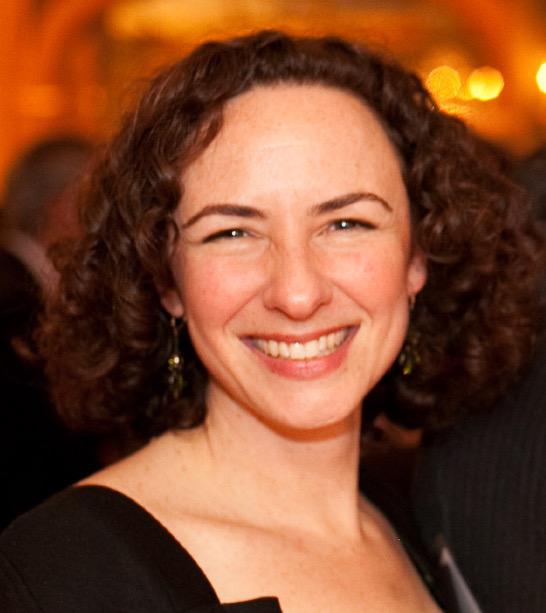
“There’s a shared understanding between audience, artists, staff, no matter the stage of development the work is in, it’s not done,” Pfaelzer said. “The kind of relationship we have with an audience here permits that kind of work. They really understand what play development means and the active role they play in it. They have seen a lot of things in very raw stages. If you see something at the beginning of a run here and come back two weeks later at the end of the run, you might see something very different.”
Pfaelzer is not alone in her enthusiasm for seeing shows transform throughout a summer season. Wendy Goldberg, artistic director of the National Playwrights Conference at the Eugene O’Neill Theater Center, enjoys witnessing new works in their first drafts. The O’Neill, which was founded in 1965, boasts alumni such as August Wilson, Wendy Wasserstein, Adam Rapp, John Patrick Shanley, Lee Blessing, John Guare, and Gina Gionfriddo. Plays and musicals in the O’Neill’s history include Nine, Avenue Q, In the Heights, Uncommon Women and Others, The Piano Lesson, and Ugly Lies the Bone.
In an effort to prevent competition, which Goldberg said is a deliberate focus at the O’Neill, staff and playwrights do not discuss the future life of works until the conferences have concluded. During their time at the Center, the playwrights and staff focus on developing the work and fostering relationships between the participants. That kind of professional matchmaking is one of Goldberg’s favorite aspects of the conferences; she laughs when she is compared to the famous musical matchmaker Dolly Levi.
You put this hodgepodge group of people together and you have no idea how it’s going to go. This is sacred ground. As a writer, you know, you have such an immense history before you. You feel it. I think it just brings out the best in people, that they become a really tight knit community and are really good to each other. They’re probably the most active listeners and participants.
Witnessing new works in their first stages of development is a thrill for Goldberg, who shared that the O’Neill’s 2016 season opener addresses the subject of police brutality. She added, “These are really fresh plays, and have just been written for the most part. I feel like the writers are speaking to what’s happening right now. They are engaged in a sociopolitical way.”
She continued,
The work that we’re developing here is always very relevant and super timely. I always feel like, “This is the moment to get it into larger theatres.” Obviously it benefits the artists a lot but it also it benefits our world. That’s something I can kind of take the temperature of—what’s on the minds of our writers. We’ll have a major political event happen, and it will take a couple of years for plays to come out. That’s why I feel like I’m in a very privileged position because I get the opportunity to see it.
Goldberg isn’t alone in feeling privileged; helping to develop new works is a driving force of Artistic Director Mandy Greenfield’s work at Williamstown Theatre Festival, which was home to the Broadway-bound productions of an acclaimed revival of The Elephant Man as well as the new works Living on Love and The Visit.
Greenfield stated, “New work that is trying to make sense of the moment we’re living in or give sense to the moment we’re living in is what makes the endeavor stage worthy. It’s pretty thrilling to do that world-or American-premiere work alongside revivals.” Williamstown’s 2016 season also includes revivals of Tennessee Williams’ The Rose Tattoo and Wendy Wasserstein’s An American Daughter. Greenfield said all revivals are held to the same standards as the new works and chosen if they inspire and further conversations about the current social and political worlds.
The submission processes for each of the summer programs varies, but their intent is the same: to broaden the scope of voices seen and heard onstage.
Greenfield, Goldberg, and Pfaelzer are all aware of the impact their selections have on the theatrical pipeline, whose diversity, or lack thereof, has received heightened awareness, especially in 2016, the year of #OscarsSoWhite and #TonysSoDiverse. They are also conscious of the heightened focus on gender diversity, following the creation and distribution of The List, a compilation of work written by women and ready for production, by activist group The Kilroys. The submission processes for each of the summer programs varies, but their intent is the same: to broaden the scope of voices seen and heard onstage.
“It’s hugely on my mind,” Goldberg said. “We’ve been talking so much with the Kilroys and the Dramatists Guild. I was skewing towards 70/30 or 60/40 work by women—always equal if not more.”
Of her own selection process, Greenfield shared:
I gravitate towards things that are unique and I’ve never seen before. I don’t start from outside. I start from inside. I listen to my own instincts about whether a story feels stage worthy, whether I think it’s going to connect, if it has something to contribute towards the cultural landscape and conversation and if it can push the cultural conversation. I think if you’re alive in 2016, you can achieve a lot of diversity if you hold the plays to a standard of excellence and stage worthiness.
Pfaelzer added,
The questions that those actors were raising—does this represent true change? or is it a moment?—are really valid? And I think those of us who are fortunate enough to be in a place making decisions have a real responsibility. This year, by chance really more than anything else, our main stage season has female writers and directors. It’s fantastic to be in a place of helping women tell these stories in widest possible way. It’s both a privilege and a responsibility to make sure those voices are represented.
While the women work to encourage representation and diversity onstage, they are also aware of the lack of women in leadership positions offstage. The League of Professional Theatre Women released findings from a study of the status of women who were employed offstage in New York City theatres outside the Broadway district as part of a larger initiative called Women Count and the numbers of many roles, such as set, sound, and lighting designers, were quite low, totaling less than one-third.
It’s been a men’s world for a long time. I think we’re slowly making some advances. I wish it would go faster.
Commenting on the number of women working on the technical teams at Williamstown, Greenfield said,
There is a kind of exhilaration to just having two female carpenters come in and award me with a piece of art that’s a symbol of female strength and beauty and power. That’s the joy of it. We can just acknowledge especially in 2016, this company has come a really long way in terms of the way it looks. I feel really exhilarated that Boo Killebrew’s world-premiere play will be on our mainstage, followed by a Wendy Wasserstein play…There’s great solidarity and joy in it.
“Generationally, you don’t see as many women in leadership roles,” Goldberg said. “I was fortunate when I started professionally and I was surrounded by really strong women and I think that made a huge impression on me and made a huge difference in terms of being taken seriously. They pushed me and were able to be really fierce supporters of me. Molly Smith and Paula Vogel, who I worked with at Arena, who were really loyal and fierce taught me to be like that. I think the generation ahead of them did not have that same kind of experience. We’re hopefully passing this down and hopefully being able to mentor more people. I think that is the biggest problem… It’s been a men’s world for a long time. I think we’re slowly making some advances. I wish it would go faster.”
Also reflecting on the importance of mentorship, Pfaelzer said:
I’ve had the benefit of being mentored by extraordinary women. I had women who came before me in this business who paved a way but also really empowered me to do this and do it as a leader, as a woman, as a parent, and they trusted me with their companies. It’s a huge amount of faith.
“I’m glad I wasn’t sitting at this desk twenty-five years ago,” she added “I don’t know that I would have been.”

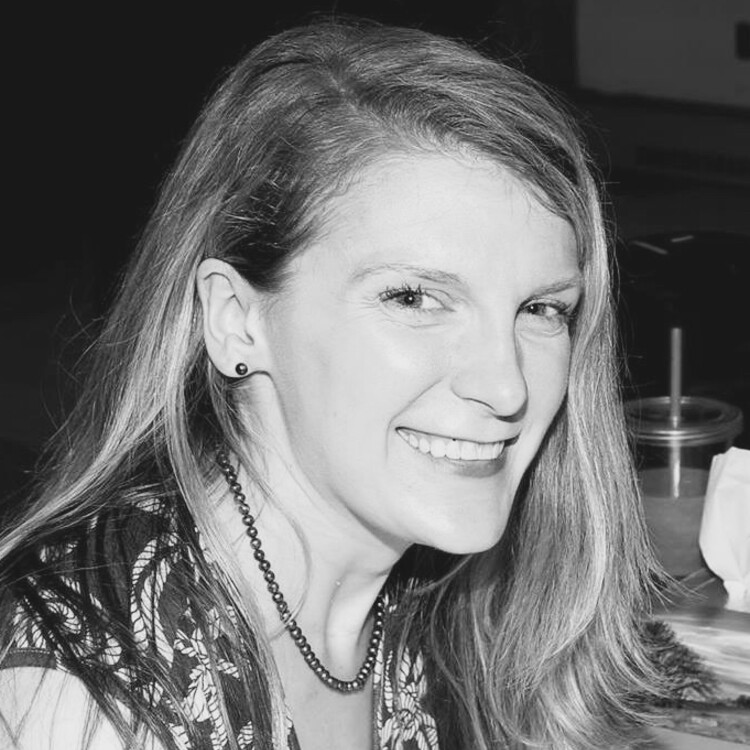
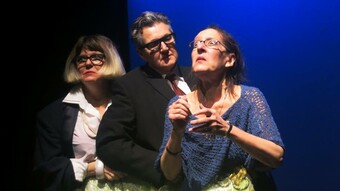

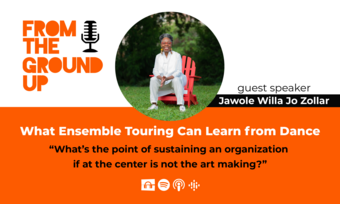


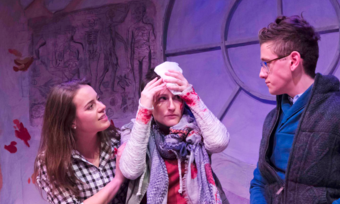


Comments
The article is just the start of the conversation—we want to know what you think about this subject, too! HowlRound is a space for knowledge-sharing, and we welcome spirited, thoughtful, and on-topic dialogue. Find our full comments policy here
check out Dorset Theatre Festival- some amazing new play development going on up there- World Premiere of a new Theresa Rebeck play, regional premiere of Sarah Ruhl's Dear Elizabeth- another Women of Summer- theatre!